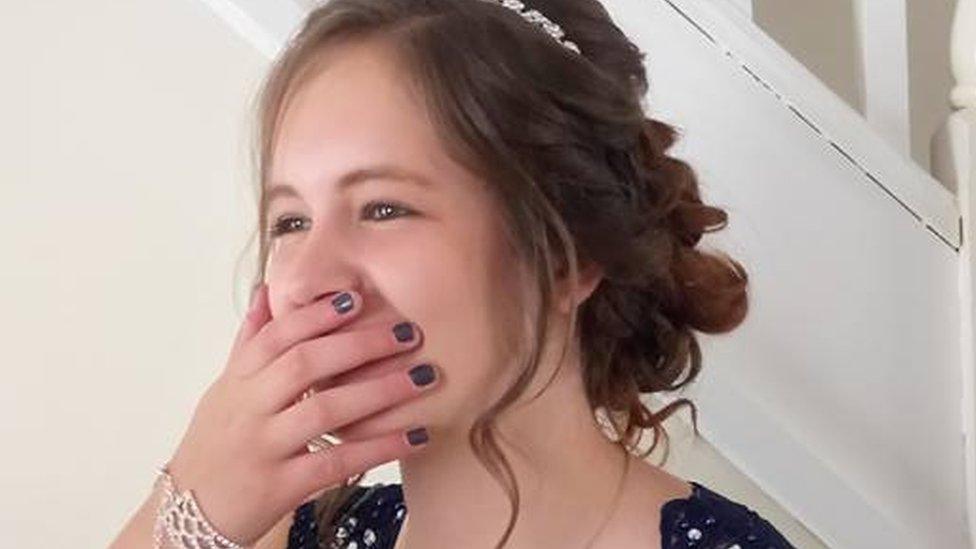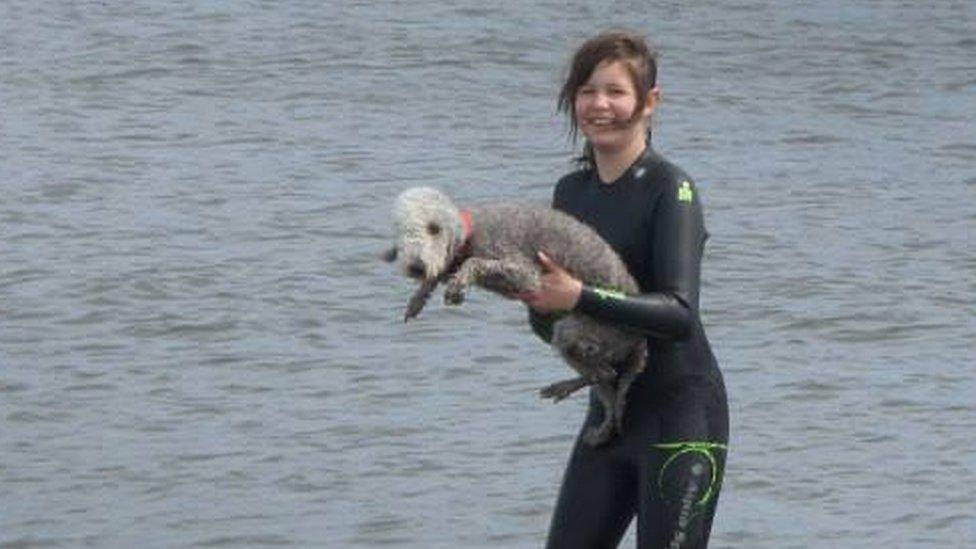County Durham paramedic struck off for failing to help girl who died
- Published

Quinn Milburn-Beadle was declared dead by paramedic Gavin Wood, who did not follow guidelines
A paramedic who failed to give appropriate life support to a teenage girl who died has been struck off following a misconduct hearing.
Emergency teams were called to attend the suicide of 17-year-old Quinn Milburn-Beadle in Shildon, County Durham, in December 2018.
A panel found Gavin Wood did not follow guidelines and the North East Ambulance Service said "the level of care he provided fell short of expectations".
Quinn's parents welcomed the decision.
The Health and Care Professions Tribunal Service (HCPTS) heard that Wood, who had more than 20 years' experience in the job, was the first paramedic at the scene where he found two police officers providing first aid.
When further medics arrived, Wood declared Quinn dead without carrying out either basic or advanced life-support procedures.
He "made a deliberate decision" not to follow guidelines "then chose to lie about it" when later questioned, the panel concluded.

Quinn had ambitions to train as a paramedic
In evidence, Woods' colleagues said he told them his shift had finished.
The panel said "it is more likely than not that it was also part of [his] rationale" for his actions as "he knew his shift had already ended and he wanted to go home rather than become involved in a protracted resuscitation attempt".
In its decision, the HCPTS's conduct and competence committee said it had "no hesitation" in ruling there had been a serious breach of the standards of conduct, performance and ethics.
It ruled that striking Wood off the register of medical professionals was the "only appropriate and proportionate sanction".
He had "failed to express any remorse or apologise" and having committed a single act of dishonesty "maintained this lie during the trust's internal investigation", it said.
Wood, who had been a paramedic since 1997, did not take part in the hearing and is no longer working for the ambulance service, the panel said.

David and Tracey Beadle said their daughter was failed when she needed help
Following the decision, Quinn's father, David, told BBC Look North: "We're happy they reached the conclusion they have so it can't happen to other families, but it doesn't change anything for us."
Her mother, Tracey, added: "We know Quinn may not have survived, but we could've had the chance to say goodbye to her in hospital.
"Quinn really wanted to donate her organs, that meant a lot to her, and we would've got a lot of comfort from knowing she'd helped other people.
"We wouldn't have had to phone our son in Manchester and tell him his little sister was gone. We could've held her warm hand in hospital and said goodbye to her there.
"The saddest thing in all this is Quinn wanted to be a paramedic. She just wanted to help people. The one time she needed it, he didn't help her."

Follow BBC North East & Cumbria on Twitter, external, Facebook, external and Instagram, external. Send your story ideas to northeastandcumbria@bbc.co.uk, external.